Location
2XL Mall, 3rd Avenue Gwarinpa.
Call Us
+234 811 111 0516
support@raagostudy.com

2XL Mall, 3rd Avenue Gwarinpa.
+234 811 111 0516
support@raagostudy.com
Canada is one of the most sought-after study destinations in the world. Known for its inclusive culture, top-ranked universities, and post-graduation opportunities, it offers international students a complete academic and lifestyle experience. Here’s everything you need to know if you’re planning to study in Canada.

World-class education: Canadian universities are globally recognised for their academic excellence and research output.
Work while you study: International students can work part-time during their studies and full-time during semester breaks.
Post-graduation pathways: Post-Graduation Work Permit (PGWP) make it easier to gain work experience and chart a path towards permanent residency.
Affordable compared to other countries: Tuition and living costs are often lower than other top destinations.
Canada offers globally ranked universities known for academic excellence and diverse programs. Here are some of the top universities according to the QS World Rankings:
|
University Name |
QS World Ranking |
|
University of Toronto |
25 |
|
McGill University |
29 |
|
University of British Columbia |
38 |
|
University of Alberta |
96 |
|
University of Waterloo |
115 |
|
Western University |
=120 |
|
Université de Montréal |
=159 |
|
McMaster University |
=176 |
|
University of Ottawa |
189 |
|
Queen’s University |
193 |
Choose your program and university: Start by researching programs that align with your academic goals and preferred location.
Check entry requirements: Review academic prerequisites, minimum GPA, and required language proficiency (IELTS, TOEFL, or French equivalents).
Prepare application documents: Gather academic transcripts, test scores, passport, resume/CV, and other required documents.
Write a strong statement of purpose: Explain your academic background, career goals, and why you’re choosing that program.
Collect letters of recommendation (Wherever required): Usually from teachers, professors, or employers who know your academic or professional work.
Online application: Application through the university’s website or provincial platforms like OUAC (Ontario universities) which IDP counsellors have an understanding and can support.
Accept your offer letter: Once admitted, confirm your seat by accepting the offer and paying any required deposit.
Apply for a study permit: Submit your visa application along with financial proof, medical exam results, and biometrics.
Get in touch with your IDP counsellor for FREE guidance and support throughout your journey.
Studying in Canada is relatively more cost-effective than other major destinations. Tuition fees for undergraduate programs at universities typically range from CAD 15,000 to 35,000 per year, while postgraduate programs may cost between CAD 20,000 to 60,000 annually. At colleges, the range can be from CAD 7,000 to CAD 25,000.
The cost of living in Canada depends on the city and lifestyle. On average, students spend about CAD 1,200 to 3,000 per month, which includes accommodation, food, transportation, utilities, and personal expenses. Cities like Montreal and Winnipeg tend to be more affordable, while Toronto and Vancouver are on the higher end. For visa requirement, a student should show that can cater for a living expenses of CAD 20,635 per annum.
To support international students, many Canadian universities and government programs offer scholarships based on merit, need, or specific eligibility criteria. Here are some options:
|
Scholarship Name |
Qualification |
University Name |
Value |
|
University of Waterloo International Student Entrance Scholarship |
Undergraduate |
University of Waterloo |
20 scholarships valued at $10,000 each |
|
University of Alberta Centenary Scholarship |
Undergraduate |
University of Alberta |
Variable from $20,000; payable over four years. |
|
Entrance Scholarships |
Undergraduate |
Cape Breton University |
Major Entrance Scholarships (total value) Chancellor’s: $30,000 President’s: $20,000 Deans’: $10,000 tzgerald: $20,000 Schwartz: $14,000 W.M. Reid: $11,500 Orpha Thayer-Scott: $10,000 |
|
President’s Scholarship for World Leaders |
Undergraduate/Postgraduate |
University of Winnipeg |
Undergraduate – 6 awards of $5,000 each. Graduate – 3 awards of $5,000 each. |
|
Entrance Scholarship |
Undergraduate |
University of Regina |
3000 CAD |
International students in Canada can work both during and after their studies. During the academic term, students can work up to 24 hours per week without a work permit and full-time during semester breaks. Many programs also include co-op or internship components, allowing students to gain practical experience.
After graduation, students can apply for a Post-Graduation Work Permit (PGWP), which allows them to work in Canada for up to three years, depending on the length of their program. This work experience can be a key step toward obtaining permanent residency through immigration pathways such as the Canadian Experience Class (CEC) or Express Entry pathways. However, this is subject to meeting all the requirements
How much does it cost to study in Canada?
International students typically pay CAD 7,000 to 60,000 per year for tuition depending on the study level as well as institution, with living expenses ranging from CAD 1,200 to 3,000 per month.
How to apply for school in Canada from Nigeria?
Choose a program, then apply through an IDP counsellor, and once accepted, use your offer letter to apply for a Canadian study permit.
What requirements are needed to study in Canada?
You’ll need academic transcripts, proof of language proficiency, a valid passport, financial proof, and a study permit.
Which university is the cheapest in Canada?
Affordable options include Memorial University of Newfoundland, University of New Brunswick, Cape Breton University and many others, with tuition starting at around CAD 10,000 – 20,000 per year.
Our goal is to empower aspiring scholars with accurate information, strategic support, and confidence as they pursue academic opportunities abroad.
Our mission is to simplify the international study process by offering tailored guidance, application support, and visa advisory services.
Confused about where to begin? Contact us today for a free consultation to explore the best-fit countries, courses, and universities for your academic goals.
Our blog is your trusted resource for expert insights, practical tips, and timely updates on studying abroad in destinations like Canada, the United Kingdom, and the United States.
Malta, a Mediterranean gem, is not only a popular tourist destination but also an emerging hub for international education....
We are closer to you. Send us an email and be sure we will respond within the shortest possible time.
Take the first step toward your international education goals with Raa GoStudy by your side. Our team of experienced consultants will guide you from initial consultation to your first day on campus—ensuring every detail is handled with care.

Raa GoStudy Consult is a premier educational consultancy dedicated to guiding students through the journey of studying abroad. We specialize in providing comprehensive support to individuals aspiring to pursue academic programs in leading global destinations such as Canada, the United Kingdom, and the United States.
Raa GoStudy Consult

Copyright © 2025 All rights reserved.
Help me study abroad